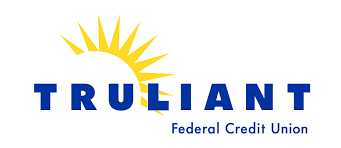Atlanta-based P1 Finance Holdings, a 37-year-old premium finance company, announced it has become a division of Truliant Federal Credit Union.
“As loan demand increased from our treasured network of agency, intermediary and carrier partners, we were simply hitting the prior institution’s capacity limits,” Bill Villari, president of P1 Finance, said. “Partnering with the larger Truliant ensures we meet rapidly growing loan demand, especially related to our large insured-borrower clients.”
Truliant is a $5.1 billion credit union, and the 80th largest in the U.S. by asset size, according to America’s Credit Unions, the largest industry trade group.
“We’re excited to welcome Bill and P1 Finance to the Truliant family,” Todd Hall, Truliant president and CEO, said. “Their client-centric commitment to service excellence, track record of consistent and sustained loan growth, and their three and a half decades of experience make it a great fit for the straightforward, service-oriented financial solutions we provide.”
P1 Finance, which is authorized or approved to do business in all 50 states, has a mission “to provide the finest property and casualty insurance premium finance experience” which it delivers through exceptional customer service, innovative loan structure and terms, and market-leading technology.
“We’ve actively grown the business at a 50% CAGR over the past five years, and new loan production is tracking over half a billion annually,” Villari said, which makes P1 one of the larger premium finance companies in the United States. “Our team is excited to be part of Truliant, given its scale, interest in building out a more robust team, capacity for loan growth, and their growing retail agent network.”
The premium finance industry coordinates lending to commercial businesses, and in some cases individuals, to cover the cost of insurance premiums, through a network of insurance agents and insurance brokers. Premium finance is typically used in the purchase of Excess and Surplus policies when the annual premium is due in-full at purchase.
The bonus for the (typically corporate) borrower is these premium finance loans enable the borrower to pay with installments, are tax deductible, and usually do not affect the company’s borrowing power. Highly regulated financial institutions like banks and credit unions are often the lenders to the insurance buyers in the premium finance marketplace, typically through a premium finance division, like P1.
Terms of the acquisition, completed in February, were not disclosed.



